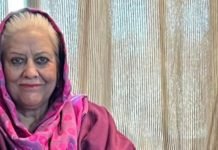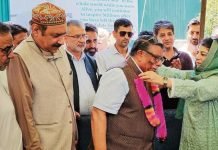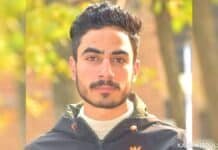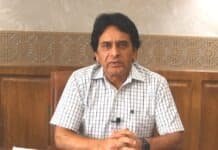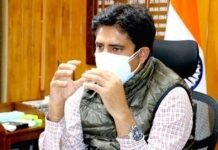New Delhi: Sameer Rashid, a final year student of Gujarat National Law University (GNLU), Gandhinagar, is one of two students – the other being Nagpur University graduate Rahul Bajaj – to have received the Rhodes Scholarship for next year.
In this short interview with Bar & Bench, Rhodes Scholarship awardee, Sameer Rashid Bhat, who also happens to be the first GNLU student and the first from Jammu & Kashmir to have bagged the prestigious scholarship, talks about his journey in law school, how to make your application stand out, and more.
What inspired you to apply?
Basically, my areas of interest are Human Rights and the intersection between Human Rights and Constitutional Law. Considering the fact that I am from Kashmir, these two areas have been very close to my heart. I wanted to do a study on the interaction between the two subjects, and I thought of pursuing a BCL at Oxford for the same, and there is no better way of going about it than applying for the Rhodes Scholarship.
Could you briefly describe the selection process this year?
This time around, for the first time, our University (GNLU) was requested to nominate names of students to the Rhodes House, India. There was an interview at the University, and I was one of the five students who were nominated. Then we had to apply individually; we had to write a personal statement etc.
On the basis of the application, they evaluate you on their criteria, and then shortlist you for the preliminary round. In this round, you have a discipline-based interview. There were fifteen other law students shortlisted for the law discipline. We were interviewed by a three-member law panel.
Then, fifteen students from all disciplines were shortlisted for the final interview, which was undertaken by a common panel. Out of the five that were selected this year, two were law students. The final panel was headed by Mr. Gopal Krishna Gandhi, who is the Chairperson of the Rhodes Selection Committee for India this year.
What was the most challenging part of the application process?
The most challenging part is writing the personal statement. It is very important that you write it in such a manner that it catches their attention, because you have excellent people applying for this scholarship, and there needs to be something different to make it stand out. Obviously, the interviews were also quite a task.
How important is the extra-curricular aspect of your application?
I think it’s very important that you have a diverse CV. You need to do different things at law school, because law school gives you a lot of opportunities. You should grab as many opportunities as you can, but at the same time, stay focussed on what you want to do. There is no harm in trying a number of things; I did that and it worked well in my favour.
How did your law school experience help you?
I would give a lot of credit to my University for this achievement; it is not my achievement alone. Having come from Kashmir, I never imagined that I would get the opportunities that I got at GNLU. I explored everything that came my way, I diversified my career options. I also wrote papers on Constitutional Law and did moot courts.
The diversity of interaction with the people at GNLU is something that has helped me grow as an individual. I have received excellent support from the staff and the administration of the University.
You were offered a job at Cyril Amarchand Mangaldas in your third year.
I had just completed my third year and done my internship there. Generally, placements happen towards the end of the fourth year. I don’t know, maybe they wanted to catch law students when they were young, but I was offered a job right after my first internship.
Any advice for future applicants?
It is very important that you maintain your grades. At the end of the day, Oxford requires people who are academically very sound. Having said that, involvement in a number of activities is very important. You need to be able to show them that you can do many different things at the same time. Also, having been in positions of responsibility matter.
Who would you like to thank for your success?
Of course, I would like to thank my family and friends. This one goes to my batchmate Gayathree Kalliyat, who is an inspiration to me. If not for her, this would not have been possible. I would also like to thank the teachers who wrote recommendation letters for me.
Follow Us
The Kashmir Pulse is now on Google News. Subscribe our Telegram channel and Follow our WhatsApp channel for timely news updates!


